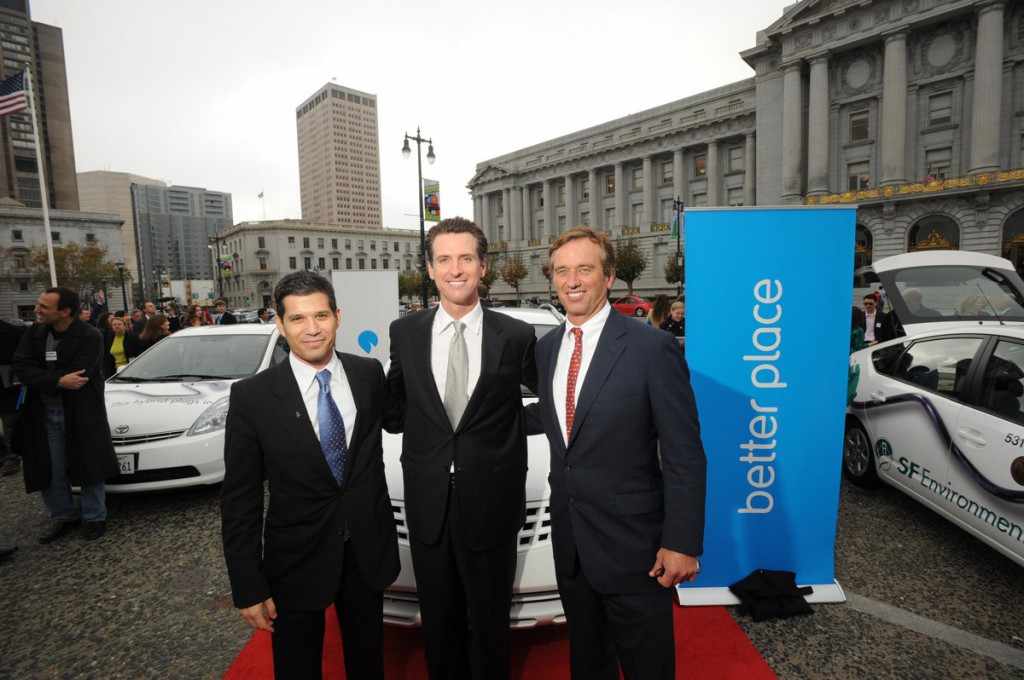
Shai Agassi (left) is on a mission of tikkun olam, to make the world a better place. How is our vertically-challenged Israeli friend going to accomplish that? By teaming up his company, Project Better Place, with Renault, Nissan and hopefully a Canadian manufacturer to supply and produce EV cars. There are agreements in place in Hawaii, Israel, Australia, Japan, San Fransisco, and now the Ontario government to explore the viability of electric cars and the necessary infrastructure to support them in those areas.
Why should you, a genuine car enthusiast, care about pitiful little electric toys like these? Two reasons. Firstly, there may come a time when we drive electric cars to work and back but then use our much-adored petrol-powered cars on the weekends. Secondly, with cars like the Tesla Roadster being produced (albeit in very limited numbers), we know that electric cars can be sexy and fast. Follow the jump to see what Project Better Place has in mind for the future.
As Mr. Creepyvoice just mentioned, Project Better Place plans to have a series of quick-charge stations at shopping centres and movie theatres complemented by robotic battery-swapping stations that would have you in and out in less time than it takes to fill your tank with gas. Sounds like a reasonable idea to me. Especially since all this electric charging would free the streets for me to be a hoon with my gas-powered car.
I’m not sure that I see the same potential in electric vehicles with batteries as I do in electric vehicles powered by hydrogen fuel cells, though. A transition to hydrogen technology would not require any change in habits by consumers because these vehicles could be fueled at gas/hydrogen stations, just like our current vehicles. The biggest hurdle in battery-powered vehicles is that they require a whole separate infrastructure made up of charging stations and battery-swapping stations. Hydrogen can be distributed at the same gas stations we use right now with the fitting of new underground tanks. That is a big difference between the two competing technologies and I think that hydrogen has the upper hand.
This having been said, the upper hand in logistics and convenience of hydrogen power may be nullified if people like Mr. Agassi are quick enough, political enough, and smart enough to make the battery-powered future a viable platform before the hydrogen one even gets a toe hold in the market.
[Edmunds]
